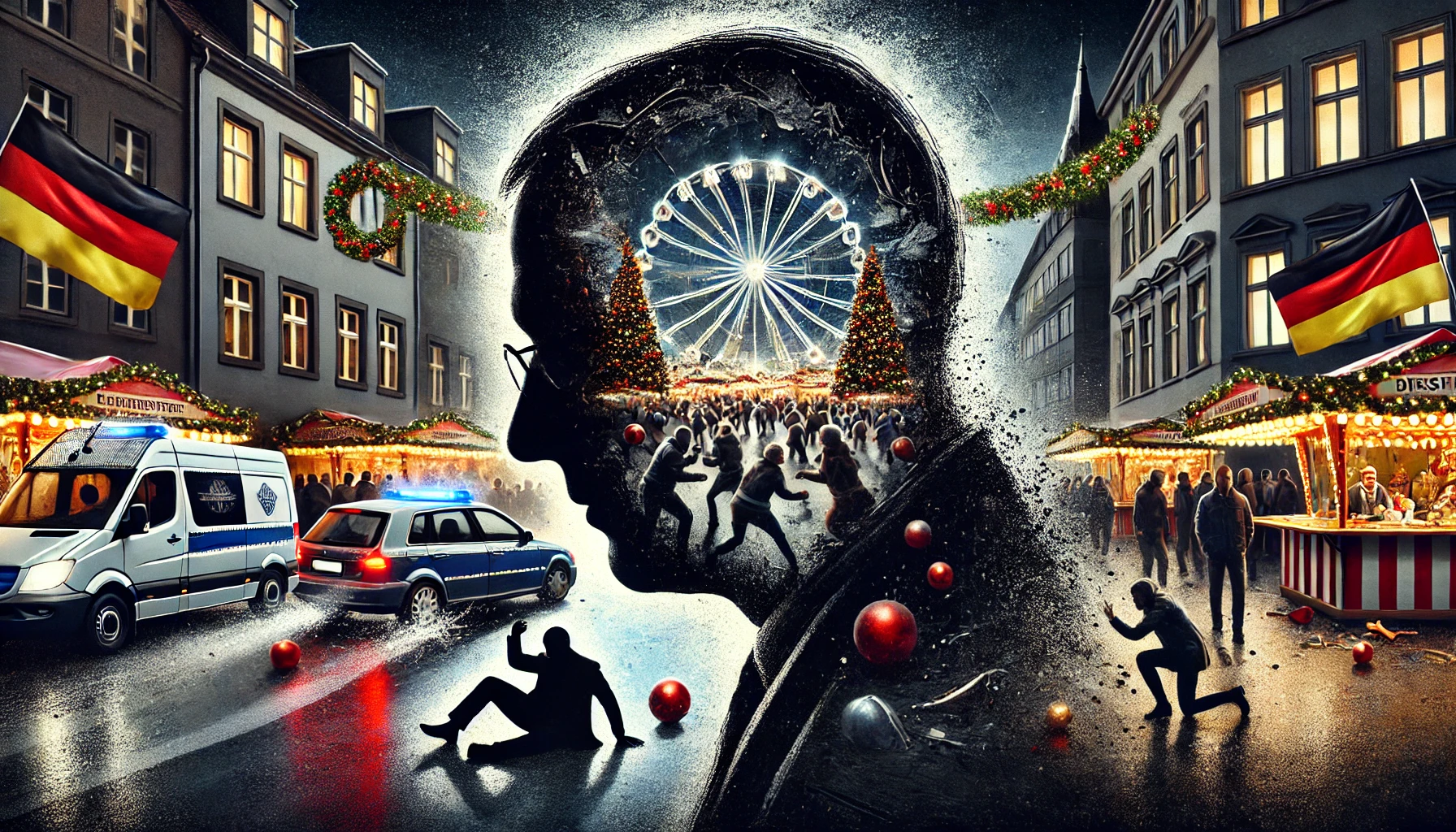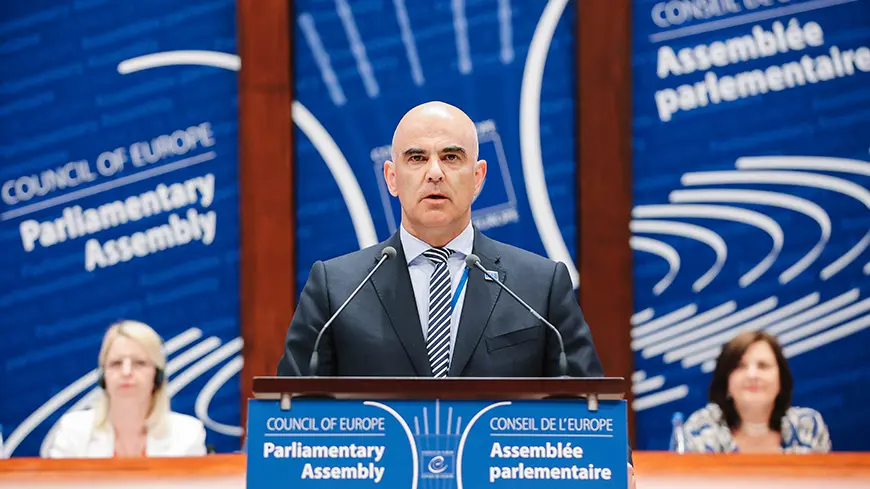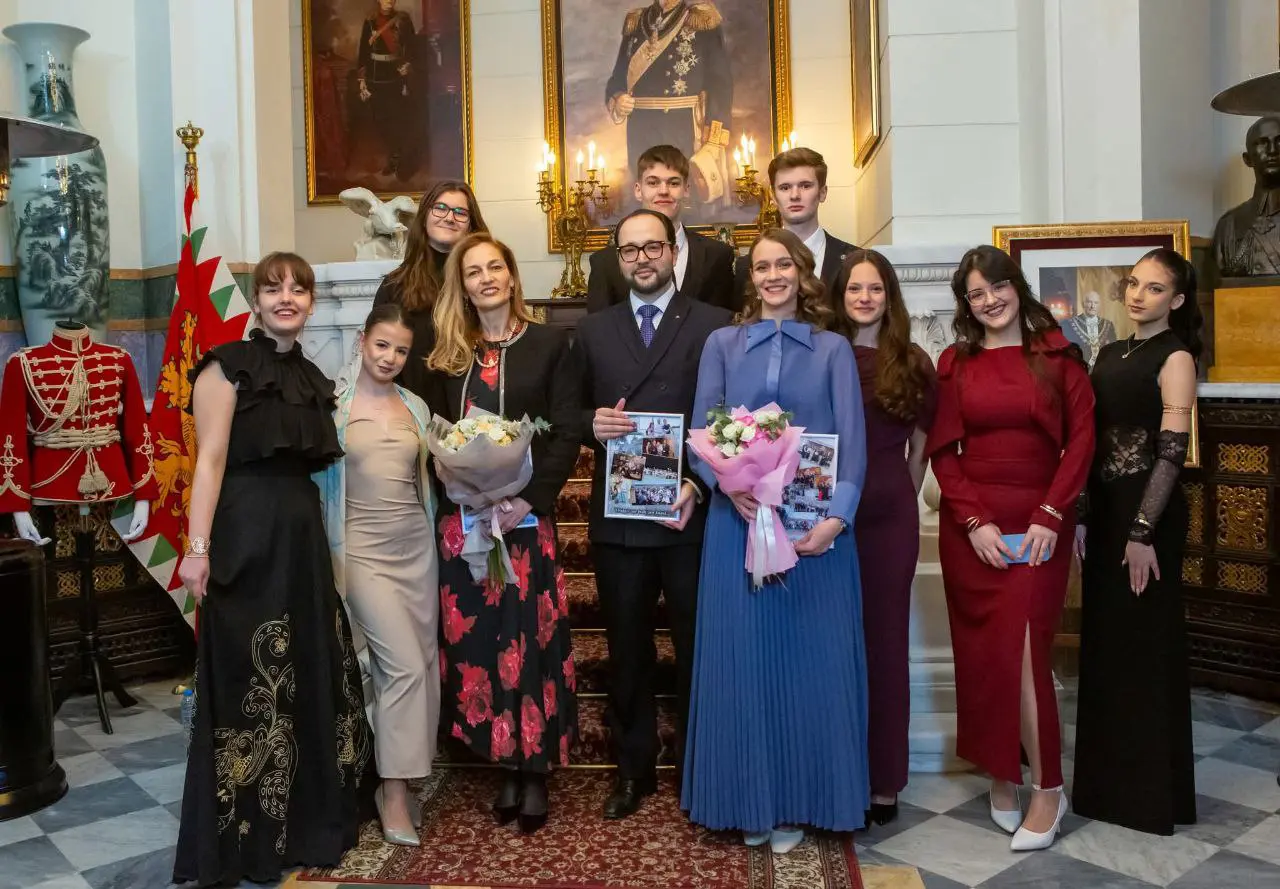MAGDEBURG, Germany – December 21, 2024 – A festive evening at a bustling Christmas market in Magdeburg turned into a scene of devastation on Friday night by a terrorist psychiatrist, as a vehicle plowed through crowds of holiday shoppers, leaving five people dead and over 200 injured.
Authorities have identified the suspect as Taleb al-Abdulmohsen, a 50-year-old Saudi-born psychiatrist who has lived in Germany since 2006.
The incident occurred around 7:00 p.m. local time when a black BMW tore through the heart of the market, packed with families and revelers enjoying the holiday season. Eyewitnesses described scenes of panic and chaos as the car barreled through vendor stalls and sent people running for their lives.
“It was horrifying,” said Maria Schultz, a local resident who was at the market with her children. “One moment, we were admiring the lights, and the next, there was screaming and people on the ground.”
Among the victims of the terrorist psychiatrist was a nine-year-old child, whose death has sent shockwaves through the community. Medical personnel worked through the night to treat the injured, many of whom remain in critical condition.
A Troubled Figure Emerges
Terrorist Psychiatrist Al-Abdulmohsen, who was arrested at the scene, has a complex history. Originally from Saudi Arabia, he moved to Germany in 2006 and was granted asylum a decade later, citing threats from his homeland over his outspoken criticism of Islam and the Saudi government.
Known for his anti-Islam rhetoric, Al-Abdulmohsen worked as a psychiatrist and had been employed at a correctional facility in Bernburg, where he treated addicted criminals. Investigators have revealed that the suspect was under the influence of drugs at the time of the attack.
His online presence, which includes conspiracy theories and far-right rhetoric, has drawn significant attention.
Posts from his social media accounts suggest a deep mistrust of German authorities and accusations that they were attempting to “Islamize Europe.” Saudi officials had reportedly warned Germany about Psychiatrist Al-Abdulmohsen’s extremist views, but no preventive measures were taken.
“This raises serious questions about how such warnings are processed and acted upon,” said political analyst Jakob Meier.
A Nation in Mourning and Reflection
German Chancellor Olaf Scholz expressed condolences to the victims and their families, calling the attack “a senseless act of violence.”
On Saturday morning, Scholz visited the site, laying flowers and meeting with local officials to discuss measures to prevent similar incidents in the future. “The safety of our citizens is paramount, especially during times of celebration,” Scholz said during a press briefing. “We will ensure a thorough investigation and take immediate action to address security concerns.”
The attack has drawn comparisons to the 2016 jihadist attack on a Berlin Christmas market, which claimed 12 lives and injured dozens. While the motivations behind Friday’s attack appear different, the outcome has reignited debates over immigration and security in Germany. Some political leaders have called for stricter vetting of asylum seekers and greater surveillance of individuals flagged as potential threats.
Magdeburg Community Response
In the aftermath of the tragedy, Magdeburg residents have come together to support one another. Vigils have been held across the city, and makeshift memorials adorned with candles and flowers now line the streets near the market.
Local business owner Klaus Reinhardt, whose stall was destroyed in the attack, said the community’s resilience is strong. “This is a dark moment for Magdeburg, but we won’t let it define us. We’ll rebuild and come back stronger.”
Security has been tightened at Christmas markets across Germany, with additional police presence and vehicle barriers now commonplace. However, for many, the sense of joy that marks the holiday season has been irreparably dimmed.
A Broader Implication
As Germany grapples with the aftermath of this attack, the questions surrounding integration, extremism, and public safety loom larger than ever.
Terrorist Psychiatrist Al-Abdulmohsen’s story — from asylum seeker to alleged perpetrator of a heinous act — adds a layer of complexity to an already fraught national conversation.
For now, Magdeburg mourns its loss, as the rest of the country watches closely, hoping for answers and resolutions to ensure that such a tragedy never occurs again.






